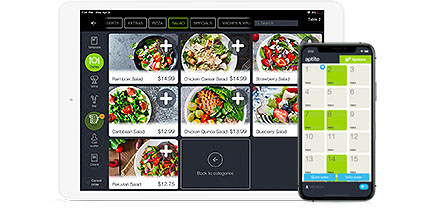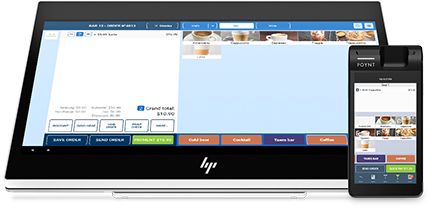War of the Tablets Continues: Conquering of Ebook Readers3 min read
 Ebook readers… remember those? Perhaps that’s what most people who have wisely purchased a tablet are chuckling about these days. That’s because the day and age of the ebook reader is about to come to a direct standstill. Sorry Amazon, we know that you just spend a fortune launching the Kindle Fire HD; but it’s still not a tablet, and it’s still reliant upon the apps that are offered only by Amazon.
Ebook readers… remember those? Perhaps that’s what most people who have wisely purchased a tablet are chuckling about these days. That’s because the day and age of the ebook reader is about to come to a direct standstill. Sorry Amazon, we know that you just spend a fortune launching the Kindle Fire HD; but it’s still not a tablet, and it’s still reliant upon the apps that are offered only by Amazon.
The desirability of the tablet is multifarious, indeed. Unlike ebook readers – which basically are elaborated digital book reading mediums with a few saucy tablet-like functions (save for the newly released Nook HD and, of course, the Kindle Fire HD) – tablets simply do more for about the same price. And also unlike ebook readers, which operate using proprietary software and applications, tablets do not have such confining limitations; and hence, their popularity over the latter is easily recognized.
So here’s the number crunching that better demonstrates why the day and age of the ebook reader may very well become just another conquered republic in the ongoing War of the Tablets.
- In 2008, giddy consumers fattened retailers’ pockets by purchasing 1 million ebook readers.
- By the year 2010, we had purchased more than 10 million of them.
- By the year 2012, we had purchased more than 23 million of them.
But then along came the affordable tablet, as competitors launched into a furious battle of technology, replete with intellectual property infringements, patent lawsuits and international courtroom battles (Apple vs. Samsung).
And the tablet wars have indeed taken their toll on ebook reader sales. In fact, market research firm IHS iSuppli estimates that ebook reader sales will tumble this year as a result, a downward spiral that will amount to a 36 percent decline in overall sales from last year; down from 22 million to a humble 14.9 million units. The year after doesn’t look so bright, either; sales are expected to continue in their decline by an additional 27 percent. This trend continues onwards, and by the year 2016, ebook readers are only estimated to sell a meager 7.1 million units.
“The rapid growth – followed by the immediate collapse – of the ebook reader market is virtually unheard of, even in the volatile consumer electronics space, where products have notoriously short life cycles,” explained Jordan Selburn, senior principal analyst for consumer platforms at IHS iSuppli.
So before you get overly excited about the Kindle Fire HD or the Nook HD, keep in mind that an HD tablet is not as limited. On Android powered tablets, you enjoy the vast Google Play store and its robust array of apps. On the Apple iPad, you enjoy iTunes. But with Nook you are limited to Barnes & Noble (fewest apps of any competitor), and on Kindle Fire HD you are limited to Amazon (second fewest apps of any competitor).
“The stunning rise and then blazing flameout of ebooks perfectly encapsulate what has become an axiomatic truth in the industry: Single-task devices like the ebook reader are being replaced without remorse in the lives of consumers by their multifunction equivalents, in this case by media tablets,” Selburn explained. “And while other uni-tasking devices – like digital still cameras, GPS systems and MP3 players – also face similar pressures and battle dim prospects ahead, all have had a longer time in the sun than ebook readers, demonstrating even more painfully the depth of the ebook reader’s fall.”
At the end of the day, a tablet still makes a lot more sense.
Ever wonder how a restaurant menu would look on a tablet? Open is the world’s premier maker of iPad Menus for restaurants. See what you have been missing out on.



